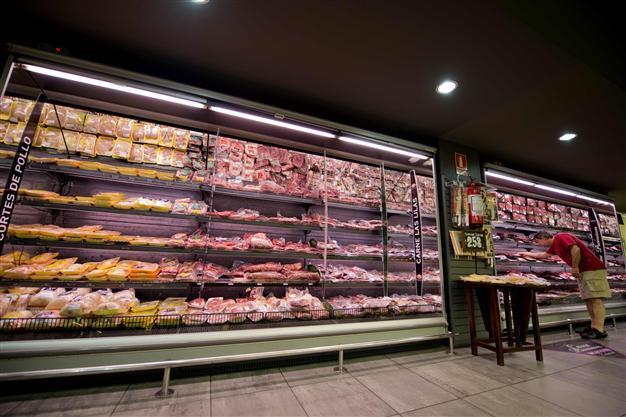Meat bad for morals, says Indian textbook
MUMBAI - Agence France-Presse

A man choses beef at a supermarket in Montevideo on November 02, 2012. The traceability of the meat, which is mandatory in Uruguay, allows to know the grower, the location and features of the ranch where the cows were raised. AFP PHOTO/Pablo PORCIUNCULA
The pros and cons of meat-eating may be the subject of debate for nutritionists, but one Indian school textbook is clear: a fleshy diet will make you lie, steal and even commit sex crimes.
The unusual moral guidance appeared in a school book for 11-year-olds, purporting to offer education on issues from health and hygiene to sex education and exercise, the NDTV news channel reported.
On a page about non-vegetarians, the book said that they "easily cheat, tell lies, they forget promises, they are dishonest and tell bad words, steal, fight and turn to violence and commit sex crimes".
It also claimed that "it is the waste products which largely produce the flavour of meat", and praised the Japanese for their vegetarian diet -- failing to mention their love of seafood.
The book's marriage advice was also questionable, suggesting women should find a husband between the ages of 18 and 25.
"To get married without a bad name is a dream of every young girl," it said.
NDTV said the text was published by the reputed printing firm S Chand, while the chief of India's Central Board for Secondary Education said books were chosen by individual schools and not monitored for content.
Despite a strong culture of vegetarianism and a religious taboo over beef-eating, Indians are consuming more and more meat as the country's economy grows and consumers become better-travelled.
The UN Food and Agriculture Organization last year said Indians' per capita consumption of meat was running at 5.0 to 5.5 kilograms (11 to 12 pounds) a year, the highest since it began compiling records.
